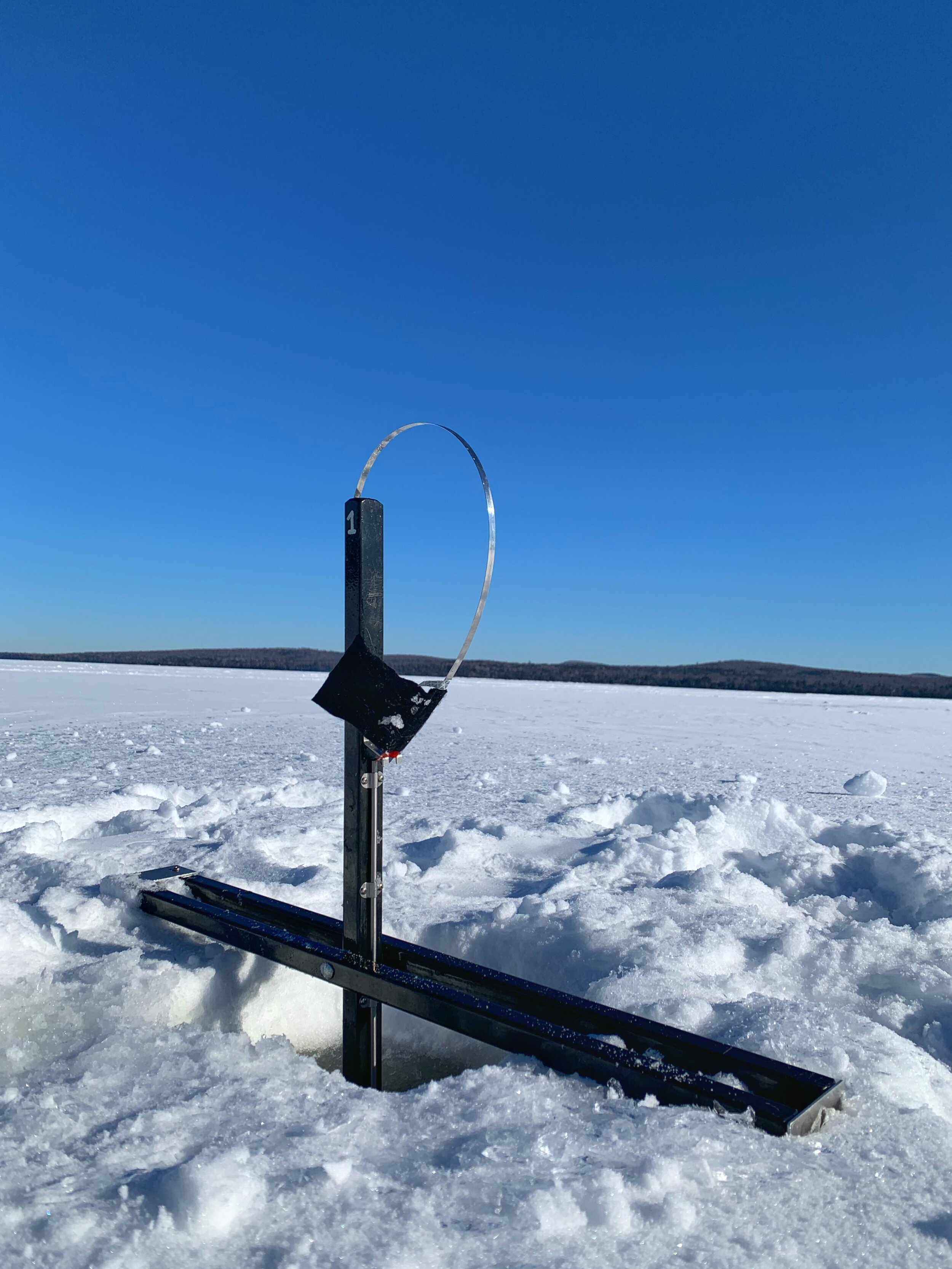On Cold and Ice Fishing
I crave a dry, crisp cold. Frozen, windswept, brilliantly white landscapes that sparkle sunlight, freeze your breath and bite at your exposed skin.
Here in southern Maine, the winter had been warm and wet. Yes, there’d been some snow, but little ice, and we were plagued by a humidity that hadn’t yet been tempered by the crystallizing influence of subzero temperatures. It was time to go north.
So, we packed up, pointed ourselves towards Polaris, and drove 7 hours north into more cold and remote country, in search of ice and ultimately the fish who dwell beneath it.
Visiting the Maine Northwoods has become a winter tradition for us, as we seek a place where phones are useful only as cameras and the incessant connectivity of internet is quickly forgotten. Where the lamps of our cabin are fueled by gas burning on ceramic-mesh mantles and the toilets are simple outhouses whose ambient temperature matches that of the day.
There, the freshwaters and their fishes aren’t burdened by the pollution of the heavily populated southern tier of the state and the fisheries themselves are still intact and teeming with wild, native fish whose ancestry stretches back into an antiquity that never involved hatcheries or stocking programs. Fish I actually want to eat.
With sufficient loft — thick, warm insulation — and the needed calories to keep the human furnace burning bright, our bodies can conserve enough heat to maintain a comfortable temperature, even when the mercury plunges into the negative numbers. But, then again, this is ice fishing, where bare, exposed fingers inevitably make contact with liquid water and wet, wriggling fishes. Wind sweeps across the open expanse of the lake, its convecting forces stripping any heat or dexterity that remains in our distal appendages.
There’s pain associated with the rapid shunting of blood away from extremities and into the core. Everything tells you to tuck those hands beneath layers, to press them against warm, protected skin, to stop tying knots or baiting hooks, or bare-handedly scooping frozen shards out of the hole in the ice that keeps freezing over in the moments after you expose liquid water. When you finally acquiesce and bury those fingers in warmth, a burning begins, as if the returning blood is a magma that sears your flesh as it refills the capillary beds that have collapsed in the cold — burned by the rushing fire of your own warm-bloodedness.
But, as the days go by, you begin to acclimate. The cold becomes less the aggressive enemy and soon becomes your coach, teaching you forgotten lessons learned by Neanderthals before the first sapiens left the warmth of our equatorial mother continent. Your body begins producing more heat. The fishes you’ve been catching — and eating — fuel a comfortable warmth that now replaces the corporeal, hypothermic primal fear that engulfed it at the sudden shock of warmth departed.
Cold isn’t a thing, it’s the absence of a thing. It’s heat — energy — that’s a thing. Cold is just the backdrop of the universe, the stage upon which the thermal play of celestial combustion unfolds and endothermic, metabolic life-forms perform their temporal acts. Cold is to warmth what the vacuum of space is to matter — and as sure as gravity’s pull on anything sent aloft, all warm things are — in the end — destined for cold. It is the baseline… may as well learn to love it.
If it weren’t for the pursuit of wild fishes — and the desire to build my body from them — I’d no doubt be cuddled up to a warm fire, or tucked beneath blankets awaiting the spring. But these fish call me to cooler climes, to embrace the absence of what my body demands, the warmth needed for comfort. These fish push me to be more, to do more, to experience what I’d otherwise avoid. These fish make me better, stronger, and more resilient. They are food, yes, but they are a “medicine” in this way too. An antidote to winters bite — a reason to endure the cold.









